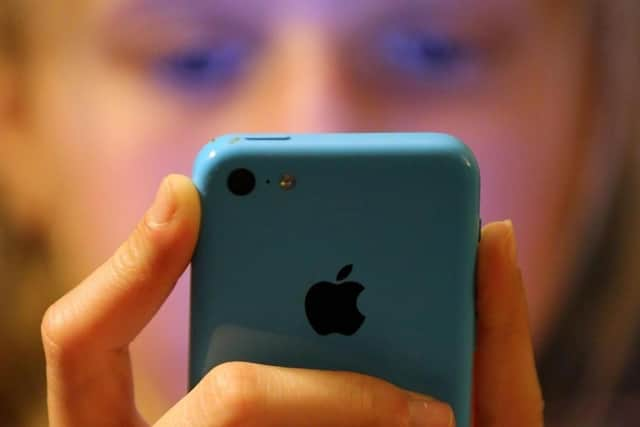What parents can do to get their children away from screens - Matt Buttery
This announcement comes two months after the publication of a UN report, which highlighted the negative impacts of smartphones in schools, including negative impacts to student learning and wellbeing, exposure to cyberbullying and increased classroom disruption.This potential ban reflects worldwide initiatives to combat excessive screen use in schools.
Whilst this potential ban may help pupils maintain concentration in the classroom, screen time outside of the classroom remains an ongoing challenge for families. With children accessing mobile phones increasingly from a younger age, it’s never been more important that parents ensure their children develop safe screen time habits.
Advertisement
Hide AdAdvertisement
Hide AdWhile setting limits around screen time can be helpful, emphasis should be placed on maintaining a positive relationship with your child and modelling a healthy relationship with device use. It’s important to remember there are no quick fixes and you should keep the conversation about technology and social media live. Parents across Yorkshire could slowly implement simple habits.When supporting children and teens to put down their devices independently, sometimes we need to give them some encouragement to understand why doing so is important. You can negotiate access to devices as rewards for doing chores or homework, but be careful to use this approach sparingly. Instead, focus on positively supporting and guiding your child’s development rather than using screen time as a bargaining chip.


Agree on when you’re all committed to switching off. Situations like family meals and brief car rides can provide opportunities for quality time as a family. It can be beneficial for your child to witness you exercising self-control and discipline with your phone or tablet usage.Reduce opportunities for screen time in bedrooms by limiting the use of devices (particularly phones and tablets) in those areas, especially at night before bedtime. This can be tricky if you have a child who needs to use a computer to do homework, but can apply to portable devices such as phones and tablets. Rather than leaving your child to their own devices when they are doing homework, pop your head in from time to time to ensure they haven't switched from studying to their phone.
Children are more likely to discuss their worries regarding what they have been viewing online if you establish open communication. You can best achieve this by checking in with your children to see how they are getting on. Open discussion can teach discretion and evaluation and is also a way of keeping an eye on the content your children or teenagers are looking at.
It is great to explain to children that a healthy mix of ‘real life’ interaction and online is important and take time to explore how we can get something positive from both. You can also learn from your child, ask them to show you how to do things you’re not aware of. Programmes like Teen Triple P can help parents throughout Yorkshire better understand their children, and support you instil safe screen time habits into your children.
Matt Buttery is CEO of Triple P UK and Honorary Associate Professor at the University of Warwick.